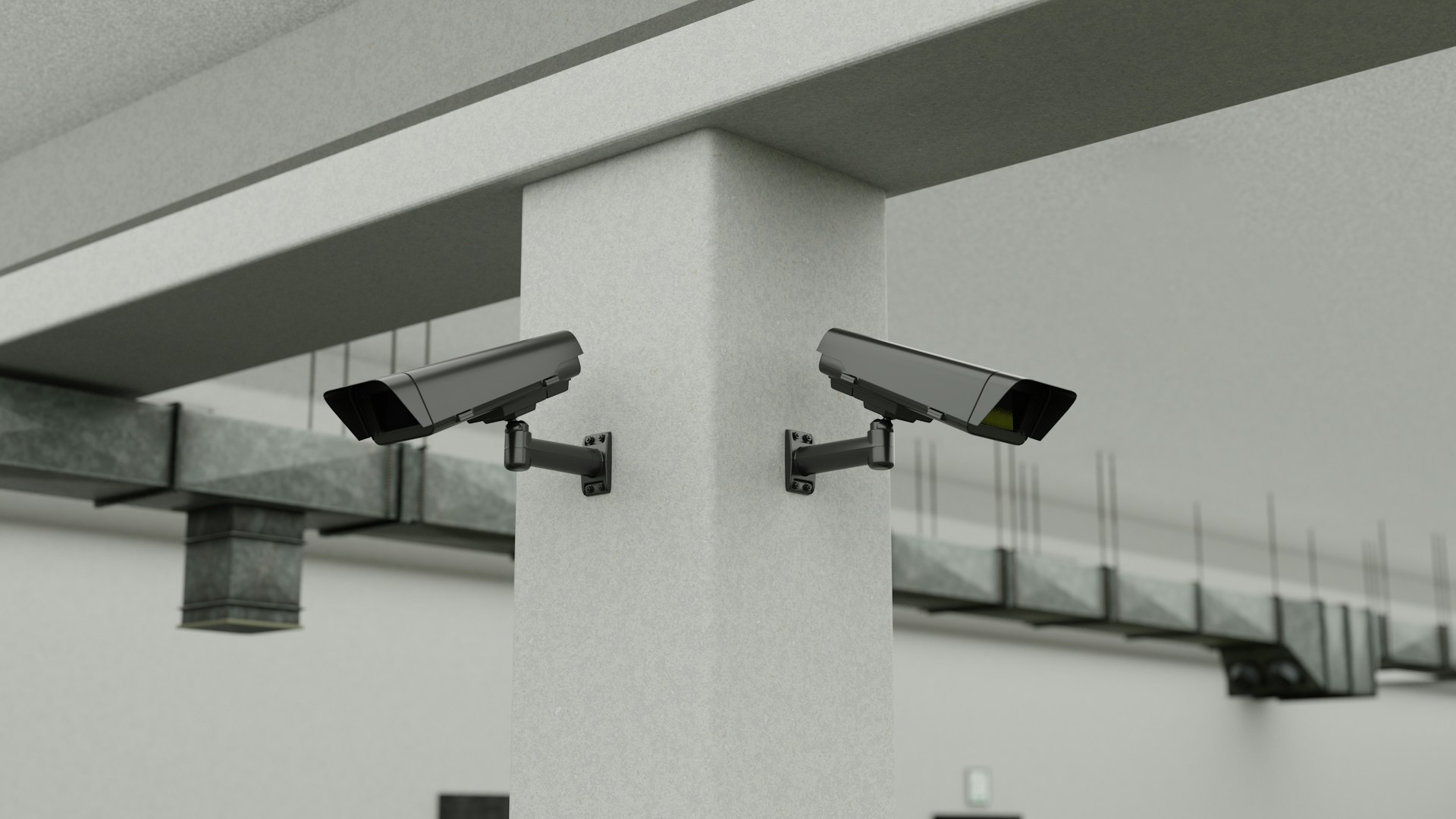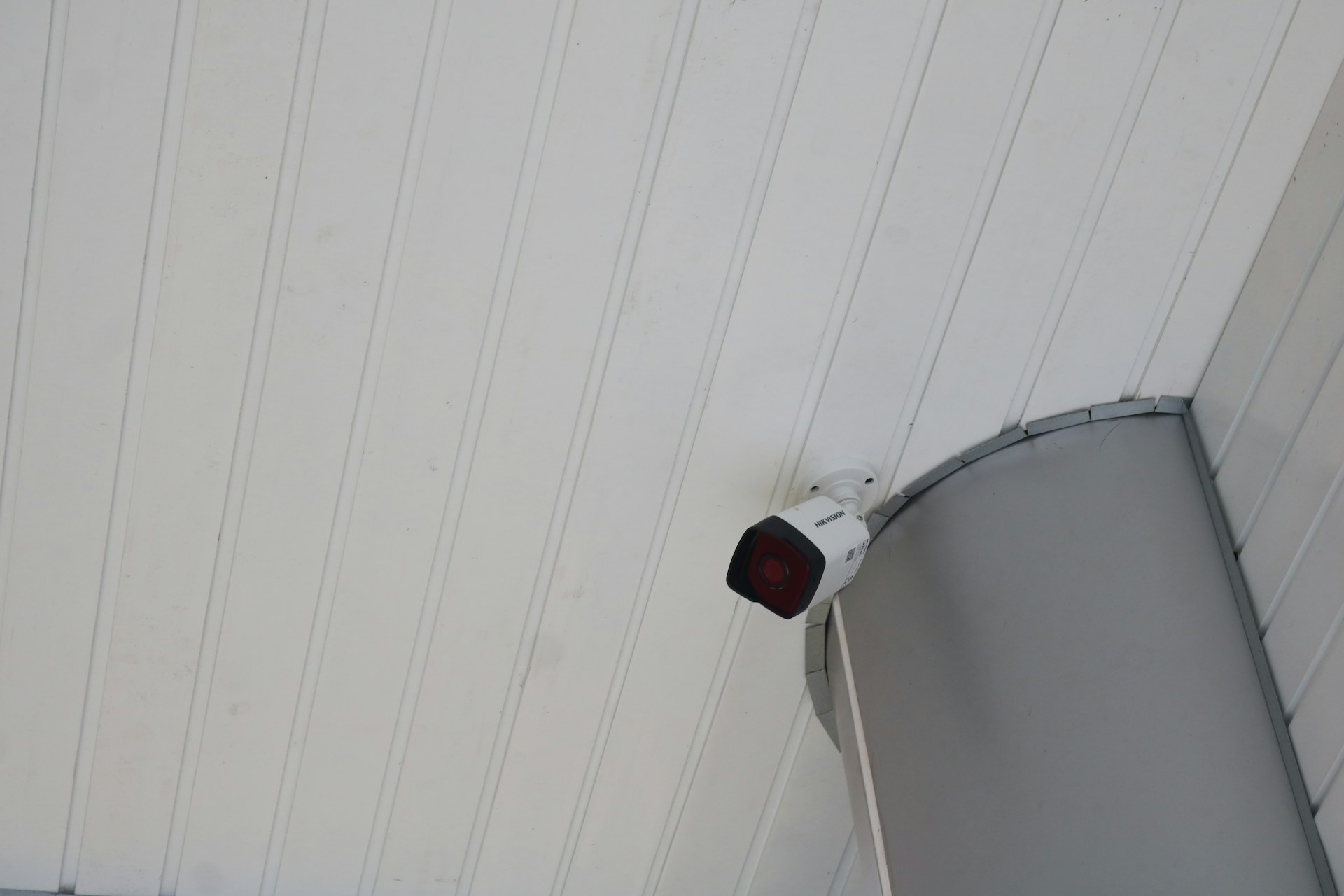Home security systems are vital for protecting your property and peace of mind. When these systems malfunction, whether due to faulty wiring, outdated software, or hardware issues, it can lead to significant vulnerabilities. Timely home security system repairs are essential to restore full functionality and ensure your safety is not compromised.
Living in the greater Houston area means you rely on your security system to defend against potential threats. If you're experiencing issues, knowing when and how to seek repairs can save you from costly consequences. From alarms to cameras, professional assistance is crucial for maintaining a secure environment.
With numerous services available, the right repair service can mean the difference between feeling safe and being exposed to risks. Understanding the common problems associated with home security systems will help you act quickly and effectively, protecting what matters most to you.
Understanding Home Security Systems
Home security systems are essential for protecting your property. They consist of several key components and technologies designed to deter intrusions and provide peace of mind. Understanding these elements helps you make informed decisions about your security needs.
Key Components of Security Systems
A typical security system comprises several essential components:
- Control Panel: This is the system's brain, connecting all devices and allowing you to manage the system.
- Sensors: These can include door/window sensors, motion detectors, and glass break sensors, which detect unauthorized entry.
- Cameras: Surveillance cameras monitor your property in real-time or record events for later review.
- Alarms: Audible alarms alert you and your neighbors to potential breaches.
- Monitoring Services: Professional monitoring can provide immediate response in emergencies.
Each of these components works together to form a comprehensive security solution for your home.
Wired vs Wireless Systems
You have two primary options when it comes to security systems: wired and wireless.
- Wired Systems: These systems connect using physical cables. They tend to be more stable and less susceptible to interference. However, installation can be complex and may require professional help.
- Wireless Systems: These systems use Wi-Fi or cellular networks. They are easier to install and can be relocated if necessary. However, they may face signal issues or battery-related challenges.
Choosing the right type depends on your property layout and personal preferences.
How Security Systems Work
Security systems function through a series of interconnected devices and processes.
- Detection: Sensors monitor for unusual activity, such as door openings or motion detection.
- Notification: When a breach occurs, the control panel sends alerts to the homeowner and, if applicable, a monitoring center.
- Response: Depending on your setup, an audible alarm may sound, and monitoring services may contact authorities.
The integration of these steps ensures that your property receives prompt responses to any threats, enhancing your overall security.
Common Home Security System Problems
Understanding the typical issues that arise with home security systems can help you address them promptly. Common problems include frequent false alarms, sensor failures, and power-related issues, each requiring specific attention.
Frequent False Alarms
Frequent false alarms are a primary concern for many homeowners. These false alerts can arise from various factors, including user error, environmental triggers, or malfunctioning equipment.
- User Error: Improperly entering codes or forgetting to disable the system can lead to unnecessary alerts.
- Environmental Triggers: High winds or pets moving near sensors may inadvertently activate alarms.
- Malfunctioning Equipment: Outdated or faulty sensors need immediate attention.
Regularly testing your system and updating equipment can significantly reduce these occurrences. In Houston, many service providers specialize in security system repairs to mitigate these issues, helping ensure that your system functions effectively.
Sensor Failures
Sensor failures are another common problem that can compromise your security system. These issues often manifest as a lack of alerts or notifications.
- Types of Sensors: Motion detectors, door/window sensors, and glass break sensors can all fail for various reasons.
- Causes of Failure: Dust accumulation, weak batteries, or wiring problems often lead to sensor malfunctions.
Inspect your sensors regularly and replace batteries as needed. If you experience persistent problems, consider contacting a local security expert for repairs.
Power and Battery Issues
Power supply issues can hinder the functionality of your home security system. Both wired and wireless systems may encounter these problems.
- Wired Systems: Cuts in wiring or electrical failures can disrupt power. Regular inspections can catch these issues early.
- Wireless Systems: Battery-powered devices may fail if batteries are old or improperly installed.
Proactively checking your power sources and replacing batteries can help maintain functionality. Professional help in Houston is available to assist with these repairs, ensuring your system remains operational.
Diagnosing and Troubleshooting Security System Issues
When your security system experiences issues, understanding how to diagnose and troubleshoot problems is essential. By identifying faulty components, running system diagnostics, and utilizing the right tools, you can effectively address malfunctions and restore functionality.
Identifying Faulty Components
Begin by assessing the visible components of your security system. Check cameras, sensors, and alarms for physical damage or blockage. Ensure that lenses are clean and no objects obstruct their view.
Next, examine wiring and connections. Frayed wires or loose connections can cause disruptions. If wireless, check the battery levels of sensors and cameras; weak batteries often lead to incomplete signals.
Lastly, observe the alarm behavior. Frequent false alarms may indicate a sensor malfunction. If specific components repeatedly fail, consider replacing them to maintain the integrity of your security system.
Running System Diagnostics
Most modern security systems come equipped with diagnostic tools. Access these features through your system's control panel or app. This will help you identify system issues effectively.
Look for error codes or alerts that indicate where problems may reside. Take note of any unusual patterns such as frequent disconnections or lagging responses, as these can point to underlying problems.
If necessary, perform a complete system reset to clear temporary issues. Always refer to your manufacturer’s manual for specific diagnostic instructions tailored to your model.
Basic Tools for Troubleshooting
Having the right tools on hand can simplify the troubleshooting process. Here are some essential items for effectively diagnosing and repairing your system:
- Screwdrivers: For securing or replacing screws on sensors and panels.
- Multimeter: To test electrical connections and voltage levels.
- Flashlight: Useful for examining components in low-light areas.
- Replacement batteries: Ensures sensors are always powered.
Additionally, a smartphone or tablet may be beneficial for accessing diagnostic apps and documentation. Being prepared with these tools helps you troubleshoot swiftly and efficiently, ensuring your home security system remains functional.
Security System Repair Procedures
Maintaining your home security system is essential for its effective operation. Addressing common repair issues promptly can significantly enhance your system's reliability and longevity. The following subsections highlight key repair procedures you may encounter.
Replacing Sensors
Faulty sensors can compromise your security system's effectiveness. If a sensor fails, you will need to replace it to restore full functionality.
- Identify the Problem: Check for alerts in your system that indicate a specific sensor malfunction.
- Remove the Old Sensor: Carefully take out the malfunctioning sensor. Ensure that the power is off to avoid any electrical hazards.
- Install the New Sensor: Connect the new sensor according to the manufacturer's instructions. Ensure it is securely mounted and aligned properly for optimal performance.
- Test the System: After installation, test the sensor to verify that it activates as expected. This ensures you maintain security coverage throughout your home.
Fixing Control Panels
Control panels serve as the hub of your security system. If your control panel shows error messages or fails to respond, you may need to address the issue.
- Power Check: Ensure the control panel is receiving power. If it's not, check the circuit breaker or replace the batteries if applicable.
- Reset the Panel: Sometimes, a simple reset can fix glitches. Refer to the user manual for specific reset instructions.
- Update Software: If your control panel has firmware, check for updates. Outdated software can hinder performance and security features.
- Replace if Necessary: If issues persist after troubleshooting, consider replacing the control panel. Consult a professional if you're unsure about performing this step yourself.
Addressing Connectivity Issues
Connectivity issues can affect communication between your home security devices. You need to address these promptly to ensure your system functions correctly.
- Check Wi-Fi Connection: Ensure the Wi-Fi signal is strong. Weak signals can lead to interruptions in service.
- Inspect Network Hardware: Check your router and modem for any problems. Restart them to refresh the connection.
- Wired Connections: For wired systems, inspect all cables for signs of wear or damage. Replace any faulty cables to maintain reliable connectivity.
- Consult an Expert: If issues persist, seeking the help of a professional service can ensure the system is correctly diagnosed and repaired.
Maintaining Camera Systems
Cameras are vital components of your security system. Regular maintenance ensures they are functioning optimally.
- Clean the Lenses: Use a soft, lint-free cloth to clean camera lenses. Dirt and debris can obstruct the view and reduce image quality.
- Check Alignment: Make sure the cameras are correctly positioned to capture critical areas. Adjust them as necessary to cover blind spots.
- Monitor Storage: Ensure that your camera system is storing footage correctly. Check for sufficient storage space and consider upgrading if needed.
- Test Regularly: Schedule routine tests of your camera system. This helps identify issues early and ensures you maintain an effective surveillance setup.
When to Call a Professional for Security System Repairs
Identifying when to seek professional help for your security system can save you time and trouble. You need to recognize signs of complex issues, choose the right technician, and consider warranty and support aspects.
Signs of Complex Issues
You should call a professional if you notice specific signs indicating complex issues. These may include persistent false alarms, system malfunctions, or failure to connect to monitoring services.
For example:
- Frequent False Alarms: If your system triggers alarms without cause, it suggests a deeper issue with sensors or wiring.
- Inconsistent Performance: Systems that fail to respond correctly during tests may need expert evaluation.
- Updates and Compatibility: If you’ve upgraded your home network or other devices, compatibility issues may arise.
Ignoring these signs can lead to more severe security vulnerabilities, making early intervention crucial.
Choosing the Right Technician
Selecting the right technician for your security system repairs is essential. Look for certified professionals with experience in your specific type of system.
Consider these factors:
- Local Expertise: Choose technicians who primarily serve the greater Houston area. They will be familiar with local regulations and common household setups.
- Reputation: Read reviews and ask for recommendations. A technician with a solid reputation is more likely to provide quality service.
- Services Offered: Ensure the technician provides comprehensive repairs, including troubleshooting, replacements, and upgrades for various systems.
A knowledgeable technician will help restore your system's reliability and effectiveness.
Warranty and Support Considerations
Understanding your warranty and support options can affect your decision to call for repairs. Many systems come with warranties that cover specific types of service.
Pay attention to:
- Warranty Coverage: Review what repairs and services are covered. Some companies may only cover repairs performed by their technicians.
- Support Lifespan: Determine how long support will be available for your system. If your warranty is expired, you may want to assess the repair costs versus replacement options.
- Customer Service: Evaluate the customer service reputation of the repair company. Good support can simplify your experience and ensure your security system functions optimally.
Knowing these details helps ensure you make informed decisions regarding your security system repairs.
Upgrading and Maintaining Your Home Security System
Keeping your home security system current is essential for optimal protection. Regular upgrades and maintenance not only enhance your system's functionality but also improve overall security. Understanding the benefits, practicing routine maintenance, and integrating new features can significantly impact your safety.
Benefits of Security System Upgrades
Upgrading your security system is a wise investment. New technologies provide enhanced protection against evolving threats. You can benefit from features like high-definition cameras, smart locks, and advanced alarm systems.
Moreover, modern systems often include mobile integration. This allows you to monitor your home remotely, receiving real-time alerts. Upgrading can also lead to lower insurance premiums, as insurers may offer discounts for advanced security measures.
Additionally, newer systems usually come with improved reliability. Outdated equipment may malfunction or fail to operate efficiently. By investing in an upgrade, you ensure that your system is equipped to manage today's security challenges.
Routine Maintenance Tips
Regular maintenance is crucial for keeping your security system in good working order. Begin with routine checks of all equipment. This includes ensuring that cameras are unobstructed and sensors are functioning properly.
You should also test your alarm systems monthly. This helps confirm that everything is functioning correctly and avoids false alarms. Make it a habit to check battery levels in wireless devices regularly.
Consider scheduling professional maintenance annually. This provides a thorough inspection and may catch issues you haven't noticed. Keeping software and firmware updated is equally important to ensure the best performance from your security system.
Integrating New Features
As technology advances, integrating new features can enhance your security system's effectiveness. Consider adding smart home features, such as automated lighting or smart doorbells. These enhance visibility and responsiveness, deterring potential intruders.
When integrating new components, ensure compatibility with your existing system. A professional installation can help streamline this process. They can assess your current setup and recommend the best upgrades tailored to your security needs.
Keep in mind that regular training on new features is essential. Familiarize yourself with mobile apps or control panels to leverage their full potential. This not only enhances security but also makes managing your system more efficient.
Frequently Asked Questions
When it comes to home security system repairs, understanding the common issues and maintenance practices can help you keep your system functioning optimally. Here are answers to some frequently asked questions that can guide you.
What are common signs that a home security system needs repairs?
You may notice several signs indicating that your home security system requires repairs. These can include inconsistent alerts, failure of sensors to trigger, or frequent false alarms.
Other signs include physical damage to components, such as broken cameras or worn-out wiring. If your system is outdated, it may also struggle to keep up with current technology needs.
How often should a home security system be serviced to prevent malfunctions?
Regular servicing is key to preventing malfunctions. It is advisable to have your home security system inspected at least once a year.
This allows for adjustments and repairs before critical issues arise. Certain components, like batteries, may need more frequent checks, possibly every six months.
Can I troubleshoot my home security system issues before calling a professional?
You can troubleshoot basic issues before seeking professional help. Start by checking the power supply and ensuring all components are connected properly.
Additionally, resetting your system can resolve minor glitches. If problems persist after these steps, contacting a qualified technician is recommended.
What should I do if my home security system is experiencing false alarms?
If your system is generating false alarms, first identify the cause. Check for any obstructions or malfunctioning sensors.
Adjust the sensitivity settings if possible. If the issue continues, consulting a professional can help ensure your system operates reliably and effectively.
How do I know if my home security system's sensors are malfunctioning?
Malfunctioning sensors often display specific signs. You may notice that certain alarms do not trigger or that alerts are inconsistent.
Physical inspection can also reveal issues, such as dirt on the sensors or signs of wear. If you suspect a malfunction, have them tested by a professional.
What is the process for repairing a security camera within my home security system?
Repairing a security camera typically follows a systematic process. Start with an evaluation to determine the specific issue, such as connectivity or image quality problems.
Once identified, necessary repairs or replacements can be made. You may clean the camera lens, reset the device, or replace faulty components, such as cables.
.svg)



.svg)


.svg)



